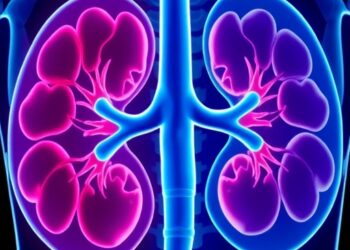Breast cancer remains a significant health concern worldwide, with diverse molecular subtypes that necessitate personalized therapeutic approaches. Recent advances have highlighted the importance of molecular signatures in guiding breast cancer treatment. Among these, the phosphatidylinositol-4,5-bisphosphate 3-kinase catalytic subunit alpha (PIK3CA) gene mutation has emerged as a crucial factor in determining the efficacy of targeted therapies, particularly in advanced breast cancer. This review explores the role of PIK3CA mutation detection in breast cancer and its implications for personalized treatment strategies.
Breast cancer remains a significant health concern worldwide, with diverse molecular subtypes that necessitate personalized therapeutic approaches. Recent advances have highlighted the importance of molecular signatures in guiding breast cancer treatment. Among these, the phosphatidylinositol-4,5-bisphosphate 3-kinase catalytic subunit alpha (PIK3CA) gene mutation has emerged as a crucial factor in determining the efficacy of targeted therapies, particularly in advanced breast cancer. This review explores the role of PIK3CA mutation detection in breast cancer and its implications for personalized treatment strategies.
Breast Cancer Heterogeneity
Breast cancer is a heterogeneous disease characterized by varying molecular signatures. This diversity necessitates a move away from traditional, one-size-fits-all treatment approaches towards more personalized therapies. Molecular analysis has identified distinct subtypes of breast cancer, each with unique genetic and molecular profiles. For instance, breast cancers expressing hormonal receptors can be treated with selective estrogen receptor modulators (SERMs) or selective estrogen receptor degraders (SERDs), while those overexpressing the human epidermal growth factor receptor 2 (HER2)-neu gene benefit from anti-HER2 therapies.
Role of PIK3CA Mutation in Breast Cancer
PIK3CA mutations are among the most common genetic alterations in breast cancer, present in approximately 30-40% of cases. These mutations lead to the activation of the PI3K/AKT signaling pathway, which promotes tumor growth and survival. The presence of PIK3CA mutations has significant implications for treatment, particularly in advanced stages of the disease. PIK3CA inhibitors, such as alpelisib, have shown promise in targeting this pathway, offering new hope for patients with PIK3CA-mutated breast cancer.
Clinical Implications of PIK3CA Mutation Detection
Detecting PIK3CA mutations is critical for guiding treatment decisions in breast cancer. Patients with PIK3CA-mutated tumors are more likely to respond to PI3K inhibitors. This is particularly relevant for patients with advanced, hormone receptor-positive, HER2-negative breast cancer, where alpelisib in combination with SERDs like fulvestrant has demonstrated efficacy. However, it is essential to perform PIK3CA mutation testing before administering these therapies to ensure that patients are likely to benefit from the treatment.
Therapeutic Strategies and Outcomes
The integration of PIK3CA mutation testing into clinical practice has led to more personalized and effective treatment strategies. In the SOLAR-1 trial, patients with PIK3CA-mutated, hormone receptor-positive, HER2-negative advanced breast cancer who received alpelisib plus fulvestrant showed significant improvement in progression-free survival compared to those receiving fulvestrant alone. This highlights the potential of targeted therapies in improving outcomes for specific subgroups of breast cancer patients.
Challenges and Future Directions
Despite the promising results, several challenges remain in the implementation of PIK3CA-targeted therapies. The development of resistance to PI3K inhibitors and the management of adverse effects are ongoing concerns. Additionally, the cost and accessibility of genetic testing can be barriers to widespread adoption. Future research should focus on overcoming these challenges, optimizing combination therapies, and expanding the use of molecular testing to ensure that more patients can benefit from personalized treatment approaches.
Conclusions
The detection of PIK3CA mutations plays a pivotal role in the personalization of breast cancer treatment, particularly for advanced cases. By tailoring therapies based on molecular signatures, clinicians can improve outcomes and provide more effective care for patients. Continued research and clinical advancements are essential to fully realize the potential of targeted therapies and overcome the existing challenges in breast cancer treatment.
Full text
The study was recently published in the Cancer Screening and Prevention.
Cancer Screening and Prevention (CSP) publishes high-quality research and review articles related to cancer screening and prevention. It aims to provide a platform for studies that develop innovative and creative strategies and precise models for screening, early detection, and prevention of various cancers. Studies on the integration of precision cancer prevention multiomics where cancer screening, early detection and prevention regimens can precisely reflect the risk of cancer from dissected genomic and environmental parameters are particularly welcome.
Follow us on X: @xiahepublishing
Follow us on LinkedIn: Xia & He Publishing Inc.
Journal
Cancer Screening and Prevention
Article Title
Mutation Detection of Phosphatidylinositol-4,5-bisphosphate 3-Kinase Catalytic Subunit Alpha for Treatment Guidance in Breast Cancer
Article Publication Date
25-Jun-2024




